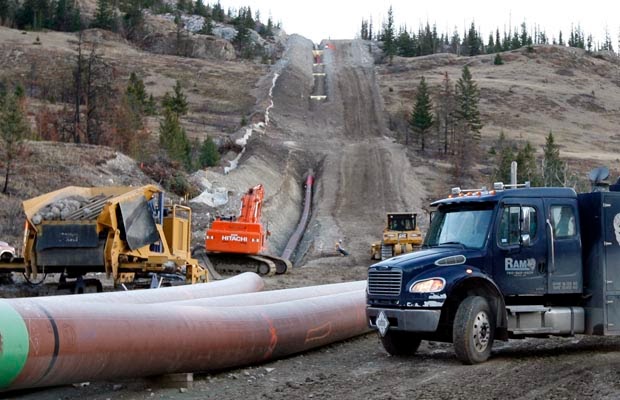Harper using media assault as fundraising ploy
It is no secret the only media the Conservatives trust is their own and insiders will often refer to the “liberal media” or “media elite” as a cause for criticisms on their governance and their difficulty attaining power prior to 2006. This mistrust and hatred as spilled to the way Harper deals with journalists and a recent feud is now the centre of a Tory fundraising ploy.
The Conservative view of the media has been fairly simple to date: if the news is good or generates a good rhetorical spin, run with it; if the news is negative or generates spin for the opposition, dodge reporters and limit their abilities.
Important questions linger around the senate scandals and Harper knows this. As the House opened with his throne speech, media were expecting to listen to the speech and have reporters ask questions afterwards – which likely would have pertained to the senate scandal. Harper, knowing this, limited the number of journalists that could enter to plainly TV cameras and photographers and no reporters – with the exception of Sun Media which had full access. As a result, the Press Gallery boycotted the event, and the photo-op the Conservative caucus wanted afterwards.
Considering the Conservative tradition of limiting questions and dodging the media in tough times, it is no surprise a scandal as large and developing as the senate scandal would lead to a government shut down. It is no surprise the party that once preached accountability is setting the terms on which Canadians have the right to know what their elected officials are doing.
The media boycott, likely anticipated by the Conservative strategists that decided to shut the door on democracy, has led to a new fundraising gimmick. In hopes a disenfranchised base, suffering from serious damage to the core, would come back swinging, the Conservatives asked members to donate because the “Ottawa media elite” sunk a “new low.”
It is no doubt the Conservatives expected a repeat of the first caucus meeting they opened to reporters where there was a fury of harsh questions about the Duffy Affair which lead to security showing reporters the door and Harper watching and smiling.
“It’s about reporters being able to do their jobs,” said Daniel Thibeault, president of the Parliamentary Press Gallery. “You need to see people. You need to see the reaction, the body language …. and in the past, it’s never been an issue.”
To add insult to injury, the anti-media Conservatives took offence to positive media response to an NDP caucus meeting across the hall from the media-free zone.
“You won’t believe what the Press Gallery just did in Ottawa,” Fred DeLorey, the Conservative party’s director of political operations, said in his fundraising email.
“Rather than send cameras to cover the prime minister’s speech, they attended the NDP’s meeting, and were welcomed with cheers and applause. We knew they wouldn’t give us fair coverage — but this is a new low for the Ottawa media elite.”
It is funny they say this considering what happened the last time journalists wanted to attend one of Harper’s speeches. We live in Canada, not China, the media’s job is to report and hold our elected officials to account, not regurgitate talking points and propaganda.
The Conservatives are a closed group that govern for themselves. In the last election, if you entered a Conservative event and asked a negative question, security showed you the door. If you’re a Chinese journalist, you cannot ask questions about Canada’s commitment to the Nexen buyout without being hauled away by staff.
If you’re a camera man, you cannot shout a question at a photo-op that doesn’t have a planned Question and Answer Period to a Conservative politician without being banned from upcoming trips – even though the standard practice is shout a question and an official will provide a brief response.
If you’re a father, you can’t ask Harper questions without being shown the door by security.
The media has been awfully patient for the Conservatives to govern the country of Canadians rather than the country of Conservatives, so have Canadians.
Perhaps the disillusioned part of Harper’s base will fork up the money for propaganda that strays away from the facts and perhaps they’ll even believe that nothing happened in the senate. However, for the centrists and fiscal conservatives who gave Harper his coveted majority, it is hard to believe that accountability and democracy aren’t core values that will lead to an exodus. It also is no doubt these factors play well to the Liberal Party, a party that traditionally hasn’t been too different from the Conservatives in economic terms and has a recent economic track-record of surpluses and fiscal conservatism rather than the deficits and reckless spending we see the Conservatives commit today.
If the Conservatives don’t want to be accountable to the Canadian people through the media, and if they want to continue limiting and using the media for clout, then why should the media continue to accept it? We live in a democratic country and any individual or political party that says otherwise is clearly not Canadian, or suited to hold office in Canada and by this means, the media should have boycotted the Conservatives a while ago. The Conservatives had a chance for the past 7 years to govern for all Canadians, but if they want a second shot before electors send them packing, as polls would suggest, they should start coming clean and trusting Canadians’ judgement.
What do you think of the Conservative fundraising campaign surrounding the provoked clash with media?




